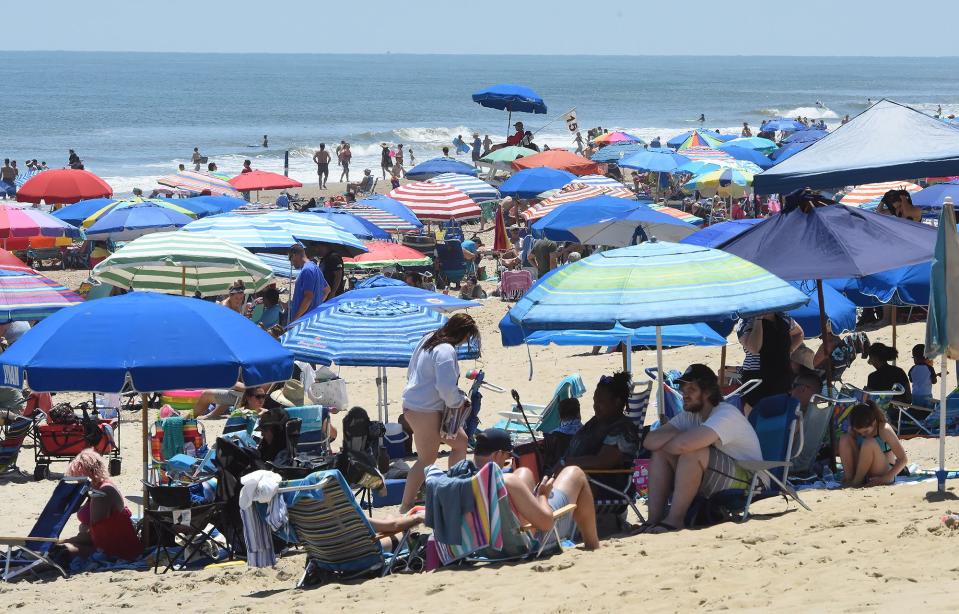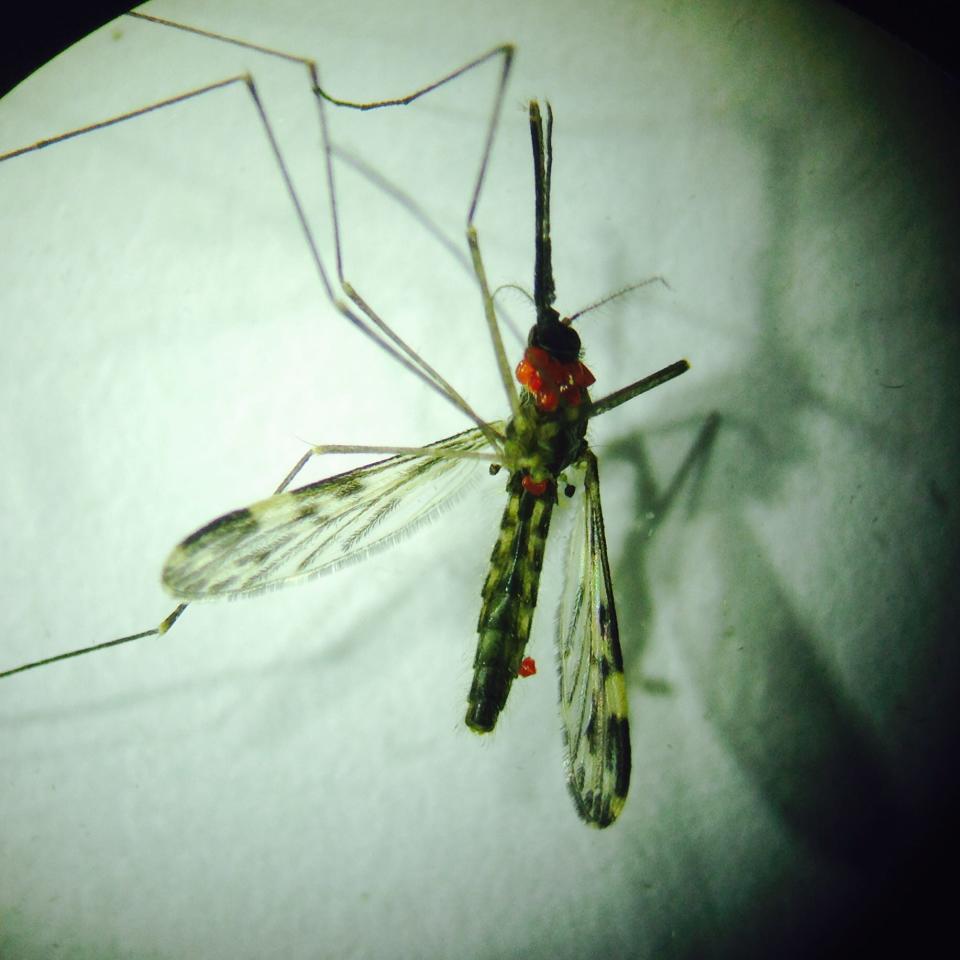When mosquitoes outnumbered tourists for Fourth of July in Rehoboth Beach: History
“Like all the summer resorts on the Atlantic coast,” the Wilmington Delaware Gazette and State Journal reported on, July 10, 1902,, “Rehoboth this year suffered from the cool weather of June, and the season did not really open until a few days previous to the Fourth. "There were few guests at the hotels, although most of the cottagers were here and settled for the summer.”
During the last week in June, the weather heated up, and vacationers began to flood into the resort.
The warm weather, however, brought swarms of unwanted visitors to Rehoboth. According to the Delaware Gazette, “Among the Saturday arrivals were half a million or more mosquitos. They arrived early in the evening … They attacked the occupants of the cottages and hotels, and even went to the boardwalk and the beach, where as a rule, they are not to be found to any extent.

"The cottages on the beach are usually well protected from these pests by screens, but even these did not discourage them in their efforts to get inside, for the smaller ones appeared to work their way through, while the larger variety remained outside and urged on the smaller ones in their bloody work”
Swarms of mosquitoes were reported in Rehoboth just a few years after the first vacationers arrived to enjoy the beach.
More: Delaware’s most beloved amusement park remains a top attraction after 60 years
On Aug. 11, 1879, the Daily Gazette noted. “Quite a furor has recently been raised over the ravages of those aggravating little pests, mosquitoes, at Rehoboth … There is a plague of mosquitoes in the lower Peninsula. Smokes or smokers are built every evening, but the mosquitoes, hitherto fearful of such things, now gambol about them with delight.”
At the Rehoboth railroad station in the center of the resort, the irritating insects attacked workers and waiting passengers, who covered their heads with mosquito netting veils to avoid the mosquitoes.
The insects also attacked many of the stagecoach horses in the resort; and, while the stages were waiting, a man would be stationed at the head of each horse to hold the nearly frantic animals.

Clouds of mosquitoes engulfed people walking in the streets of Rehoboth, and the swarms were so thick that women wearing light-colored dresses appeared to be dressed in black.
The insects were so annoying that many vacationers cut short their stays. At the beginning of the week before the insects arrived, there were over400 guests at the Bright House in Rehoboth. By Friday, nearly all of the guests had checked out of the hotel.
The mosquitoes were not only numerous, but they were also so large that their size reached legendary proportions.
More: Superman touted by Eminem, Ye, Shaq. Does that make him Delaware’s most famous son over Biden?
On May 20, 1881, the Middletown Transcript joked, “A carpenter at Green Hill, Sussex [County] has unearthed a skeleton, twice the size of a large man. Maybe it is the skeleton of a Rehoboth mosquito.”
Three years after the invasion of 1879, the mosquitoes returned to Rehoboth in unprecedented swarms.
According to the Daily Gazette, “The first sound in the morning was the ever-inspiring hum of the pesky little insect; his humming and stinging was constant throughout the day, and the last sweet note that lulled the weary one to rest was made by him.”

In the early 20th century, the use of pesticides, and a concerted effort led by Mrs. Mary Wilson Thompson, known as the “Mosquito Woman,” to clean the ponds, marshes and other breeding places helped eradicate the mosquitoes that had once gamboled about Rehoboth; and vacationers could plan their July 4th stay at the beach free from “the aggravating little pests”.
Principal sources:
Delaware Gazette and State Journal, July 10, 1902.
Daily Gazette, Aug. 11, 1879; Aug. 21, 1882.
Middletown Transcript May 20, 1881
Daily Evening Bulletin, Sept. 11, 1879, Newspaper Abstracts, http://www.newspaperabstracts.com/link.php?action=detail&id=46672
Anthony Higgins, ed., “Mary Wilson Thompson Memoir (Part One)”, Delaware History, Vol. XVIII, NO. 1, Spring-Summer, 1978, pp. 259-262.
This article originally appeared on Salisbury Daily Times: When mosquitoes outnumbered tourists for 4th of July in Rehoboth Beach

